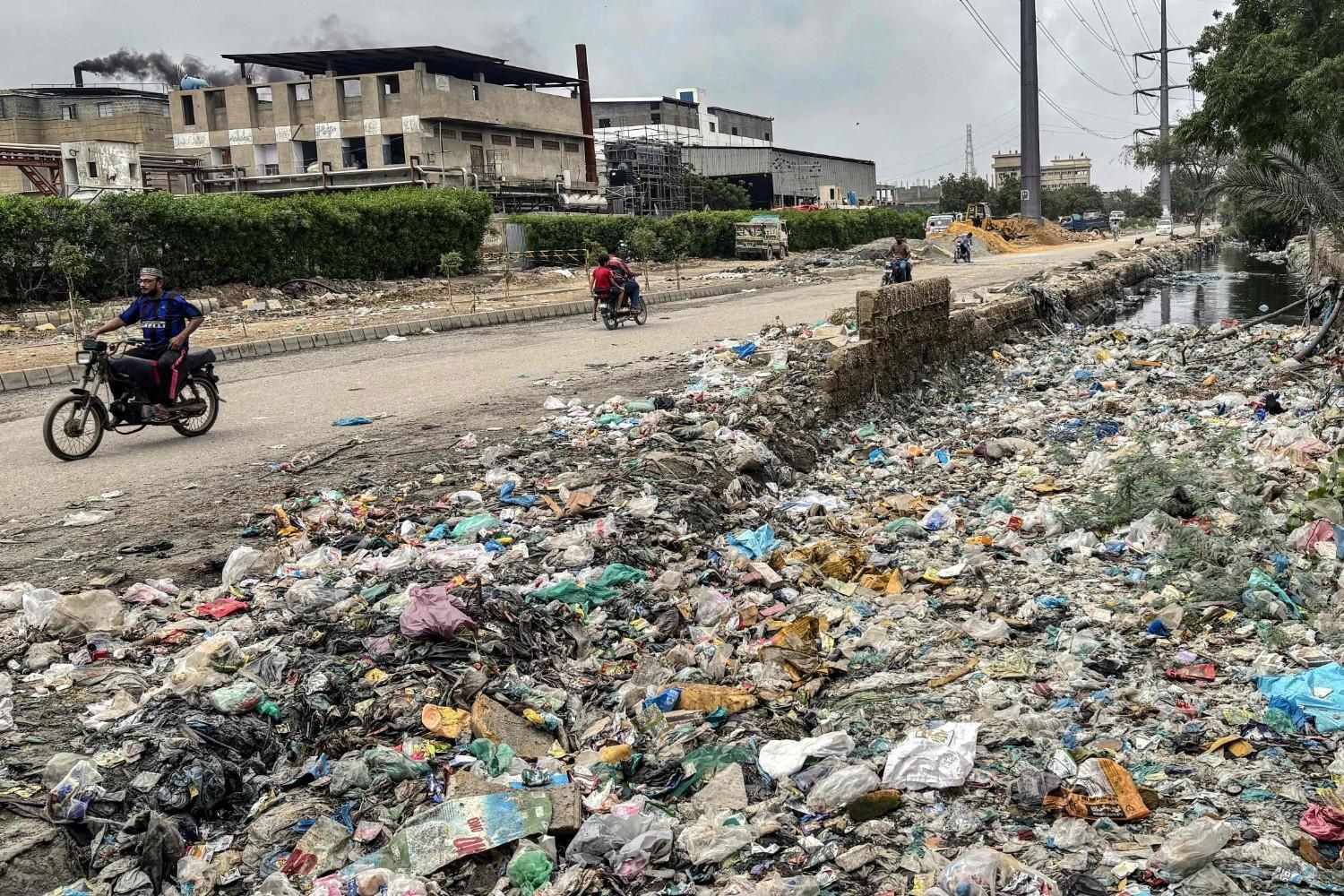
Floodwaters gushing through mountain villages, cities rendered swamps, mourners gathered at fresh graves, as Pakistan's monsoon season once again delivers scenes of calamity, it also lays bare woeful preparedness.
Without better regulation of construction and sewer maintenance, the annual downpours that have left hundreds dead in recent months will continue to kill, experts say.
Even Prime Minister Shehbaz Sharif appeared to agree as he toured flood-stricken northwestern Khyber Pakhtunkhwa province last week, where landslides killed more than 450 people.
"Natural disasters are acts of God, but we cannot ignore the human blunders," he said.
"If we keep letting influence-peddling and corruption control building permits, neither the people nor the governments will be forgiven."
Pakistan is among the countries most vulnerable to climate change, with limited resources for adaptation.
In the devastated mountain villages the prime minister visited, and beyond, residential areas are erected near riverbeds, blocking "natural storm drains," former Climate Change Minister Sherry Rehman told AFP.
Entrepreneur Fazal Khan now recognizes the "mistake" of building too close to the river.
His home in the Swat Valley was destroyed first by 2010 floods and then again in the 2022 inundation that affected nearly 4 million Pakistanis.
"On Aug. 15, once again, the floodwater surged through the channel and entered our home," the 43-year-old father said.
Since it began in June, this year's monsoon has killed around 800 people and damaged more than 7,000 homes, with further downpours expected through September.
While South Asia's seasonal monsoon brings rainfall that farmers depend on, climate change is making the phenomenon more erratic, unpredictable and deadly across the region.
By the middle of this month, Pakistan had already received 50 percent more rainfall than this time last year, according to disaster authorities, while in neighboring India, flash floods and sudden storms have killed hundreds.
Extractive practices have also compounded the climate-related disasters, with cash-strapped but mineral-rich Pakistan eager to meet growing American and Chinese demand.
Rehman, the former minister, said mining and logging have altered the natural watershed.
Urban infrastructure, too, has faltered.
Days after villages were swept away in the north, a spell of rain in the south brought Pakistan's financial capital, Karachi, to a standstill.
The coastal megacity, home to more than 20 million people, recorded 10 deaths last week, with victims electrocuted or crushed by collapsing roofs.
A Human Rights Commission of Pakistan (HRCP) report said brown water inundating streets is not only the result of rain but "clogged drains, inadequate solid waste disposal, poor infrastructure, encroachments, elitist housing societies... and so on."
In the sprawling, rapidly swelling city, the various authorities, both civil and military, have failed to coordinate urban planning, according to the rights commission.
As a result, what infrastructure does get built can solve one problem while creating others.